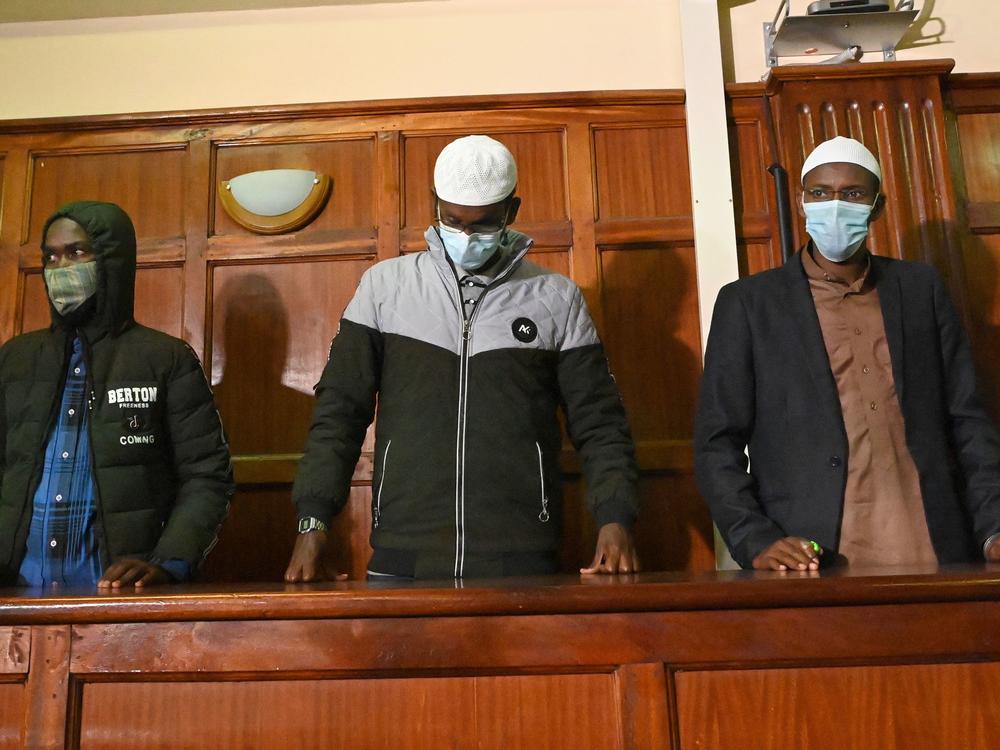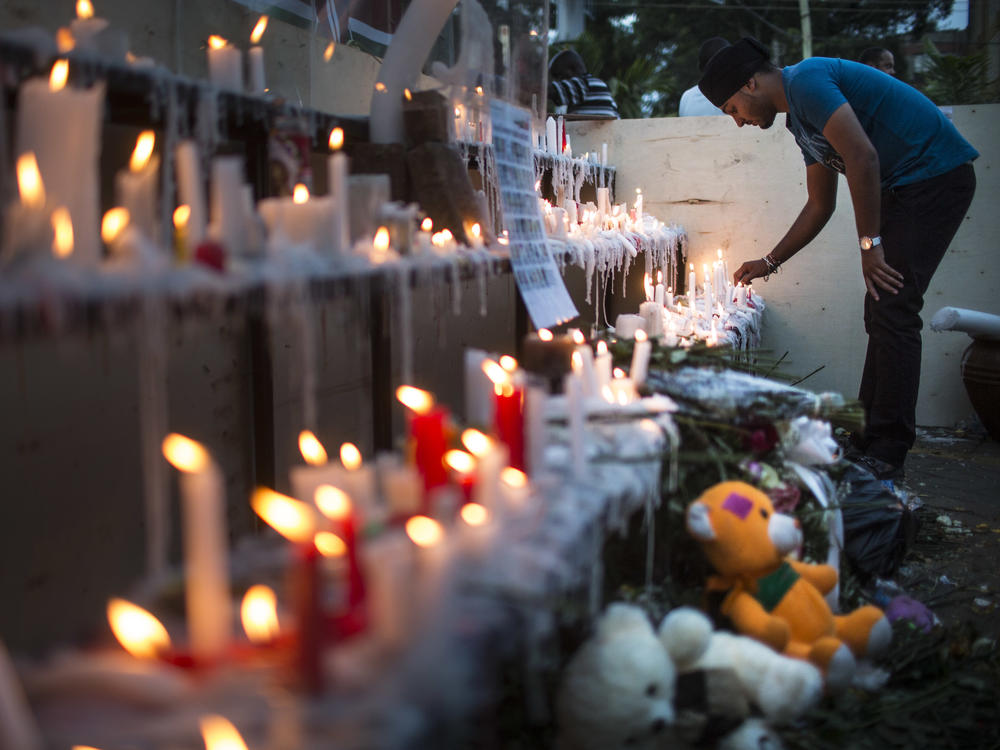Section Branding
Header Content
2 Men Found Guilty For Aiding Mall Attack In Kenya That Left 67 Dead
Primary Content
Seven years after gunmen killed 67 people at an upscale mall in Nairobi, Kenya, two men have been convicted for their role in the attack.
A Kenyan court on Wednesday found two suspects, Mohamed Ahmed Abdi and Hussein Hassan Mustafa, guilty for their roles in the 2013 attack, according to the New York Times. A third, Liban Abdullah Omar, was acquitted of charges.
None of the three were accused as gunmen, but instead of aiding the attack. They faced charges of conspiracy to commit terrorism and supporting a terrorist group. A fourth suspect, Adan Dheq, was released last year due to a lack of evidence.
The convicted men are scheduled to be sentenced on Oct. 22, according to Reuters.
The four men, all ethnic Somalis, were first charged in November 2013. They each pleaded not guilty and the case went to trial. The trial has been delayed multiple times.
The gunmen in the assault were believed by officials to be killed. But an independent New York City Police Department report says it's uncertain due to the failure to keep a secure perimeter around the mall.
The attack began with grenades thrown around lunchtime on September 21, 2013. Gunmen then began firing indiscriminately into the crowd.
Those killed came from 13 countries and were as young as eight years old.
The siege lasted four days as Kenyan security forces worked to subdue the attackers. Civilians were taken hostage and many hid behind counters, under cars and other places in the mall.
The mall remained closed until almost two years later.
Al-Shabab, an Islamist terror group, claimed responsibility for the attack. It is the same group that killed 21 people in 2019 at a luxury hotel and office complex in Nairobi. In January, the group attacked a Kenyan airfield where U.S. troops are based, killing three Americans.
In 2015, the group killed 147 people at a university in northeast Kenya.
Kenya's police and army were widely criticized for their response to the attack, according to the Associated Press, which notes that the attack had been going for two hours before police tactical teams entered the mall.
A police officer was killed in a bout of friendly fire due to a lack of coordination between police and the military, the AP reports. The attackers are thought to have died of smoke inhalation after the army allegedly blew up a part of the mall.
"For as long as the authorities remain reluctant or unwilling to investigate the conduct of the security forces," Otsieno Namwaya of Human Rights Watch told Reuters, "questions will persist as to whether justice has indeed been served in this case regardless of how the judges decide."
Reese Oxner is an intern on NPR's News Desk.
Copyright 2020 NPR. To see more, visit https://www.npr.org.


